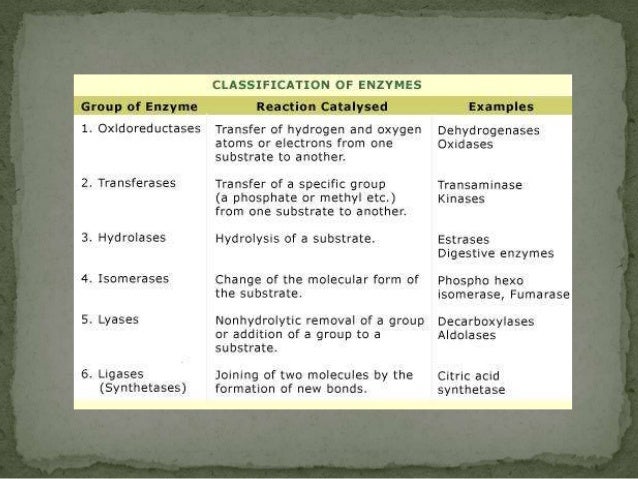
Introduction to enzymes Introduction to Biotechnology Enzymes and Pharmaceuticals Industries. However the modern term refers to biological catalysts in the form of globular proteins that facilitate chemical reactions in the cells of all living organisms.

Principles and biotechnological applications Peter K.
What is enzyme biotechnology. Enzyme Biotechnology Enzymes are the biocatalysts that are capable of mediating many biological reactions and conversion of element into other intermediate products and so on to the final product. Coming to their activity total enzyme will not be involved in. In 1878 Kühne coined the term enzyme from the Greek enzumos which refers to the leavening of bread by yeast.
However the modern term refers to biological catalysts in the form of globular proteins that facilitate chemical reactions in the cells of all living organisms. There Are Various Applications Of The Enzymes In Biotechnology. Engineered strands produced using renewable sources of biomass are environmentally sustainable and are.
Breakdown Of Hydrogen Peroxide. At the point when cotton is bleached a chemical called hydrogen peroxide. Biotechnology could be traced back to thousands of years ago when human started to use yeasts to make liquor.
This may be the first dawn of biotechnology in food production. Along with the development of natural and social sciences nowadays biotechnology carries more. Enzyme Biotechnology in Everyday Life Removing Stickies.
Enzymes are used by the pulp and paper industry for the removal of stickiesthe glues adhesives. Enzymes have been used in many kinds of detergents for over 30 years. Enzymes are basically proteins that are produced by living organisms to bring about certain metabolic and biochemical reactions in the body.
They are biological catalysts that speed up reactions inside the body. What Is The Structure Of An Enzyme. Enzymes as mentioned above are biological catalysts.
Enzymes are biological catalysts also known as biocatalysts that speed up biochemical reactions in living organisms. They can also be extracted from cells and then used to catalyse a wide range of commercially important processes. Enzymes are proteins that catalyze chemical reactions and thus often replace chemicals in products and industrial productions.
Biotechnology could be traced back to thousands of years ago when humans started to use yeasts to make liquor. This may be the first dawn of biotechnology. Enzymes have a great importance in Biotechnology.
Biotechnology is defined as the exploitation of biological processes for industrial and other purposes especially the genetic manipulation of micro organisms for the production of antibiotics hormones etc. Biotechnology encompasses a wide range of industries such as brewing. Importance of Enzymes in Biotechnology 1.
Introduction to enzymes Introduction to Biotechnology Enzymes and Pharmaceuticals Industries. Enzymes Enzymes are biological catalysts or assistants. Enzymes consist of various types of proteins that work to.
Enzyme Biotechnology and Textiles. Enzymes are used to treat and modify fibres particularly during textile processing and in caring for textiles afterwards. For example enzymes called catalases are used to treat cotton fibres and prepare them for the dyeing processes.
Enzyme Biotechnology Production of microbial enzymes of industrial importance. Microbial production of amylase lactase catalase glucose oxidase lipase cellulases hemicellulases esterases etc. In enzyme technology a subfield of biotechnology new processes have been and are being developed to manufacture both bulk and high added-value products utilizing enzymes as biocatalysts in order to meet needs such as food eg bread cheese beer vinegar fine chemicals eg amino acids vitamins and pharmaceuticals.
Enzymes are biological catalysts also known as biocatalysts that speed up biochemical reactions in living organisms and which can be extracted from cells and then used to. Biotechnology the use of biology to solve problems and make useful products. The most prominent area of biotechnology is the production of therapeutic proteins and other drugs through genetic engineering.
Modern biotechnology and enzyme allergies Modern biotechnology techniques are utilized to improve microbial production strains to increase the enzyme yields and to make minor amino acid changes that improve the functionality of the enzyme. These changes are not known to increase the ability of enzymes to cause allergies. Enzymes are a biological substance that accelerates the rate of various biochemical reactions in a living organism without being used up in the reaction.
The actions of enzymes are specific and biodegradable. Enzymes are involved in most of the biochemical reactions going on in microorganisms plants animals and human beings. Principles and biotechnological applications Peter K.
Robinson1 College of Science and Technology University of Central Lancashire Preston PR1 2HE UK. Abstract Enzymes are biological catalysts also known as biocatalysts that speed up bio-chemical reactions in living organisms and which can be extracted from cells and.